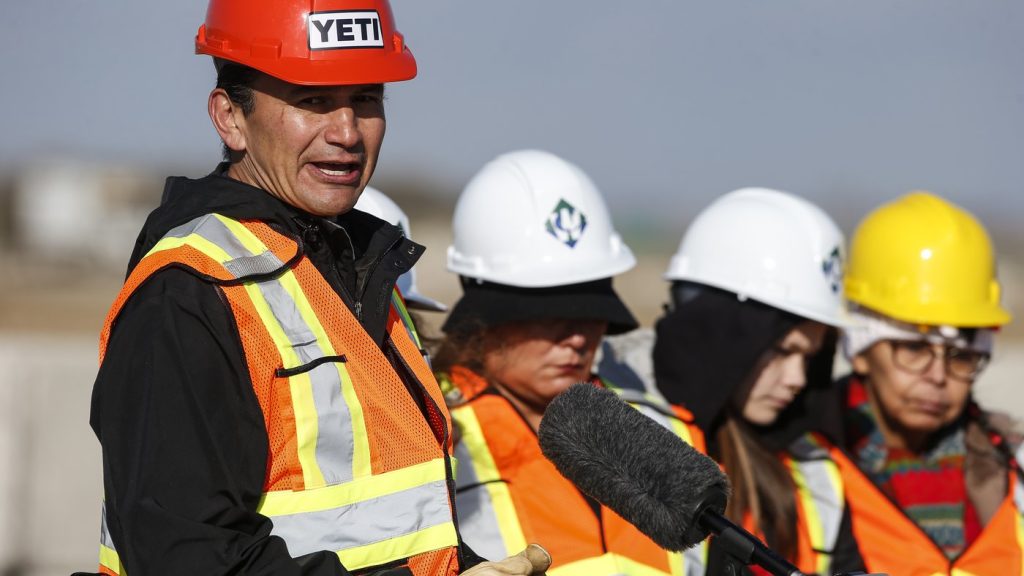Winnipeg woman delays urgent medical care due to long ER wait; urges others not to do same
Posted February 6, 2024 6:54 pm.
Last Updated February 6, 2024 7:11 pm.
A Winnipeg woman initially deterred by long wait times at the ER regrets not going sooner, after spending 16 hours to see a doctor for a cardiac episode.
Melissa Mathew feels her hesitation to visit St. Boniface Hospital was the wrong call because it diminished the severity of her episode and extended her wait as a result.
While she recognizes ER wait times are a serious problem that need fixing, she’s urging others not to make the same mistake.
“I don’t want it to be a deterrent for people who do need to seek medical care,” she said. “Because if they hear that and they say ‘oh my goodness, she waited 16 hours with a heart condition, I shouldn’t go to the hospital,’ I don’t want it to be like that. I want people to know what the situation is.”
The 41-year-old, who has a serious cardiac condition called supraventricular tachycardia, began having cardiac distress during a dodgeball game on Jan. 7.
“On that day I did end up having an episode where my heart rate went to about 175. It was quite high,” recounted Mathew, who adds stress, caffeine, exercise and sleep patterns can be among triggers for an episode.
“When your heart is beating that fast at about 175-180 beats a minute, it’s actually not pumping anymore. It’s just beating really fast. So you’ll feel light-headed, dizzy. You’re not getting enough oxygen so you’re probably struggling to breathe.”
Normal resting heart rate varies from 60-100 beats per minute.
Mathew says when she checked on hospital wait times, they were showing at least 13 hours.
“I thought, ‘oh boy, I don’t want to go and sit there with how I was feeling,’” she said.

So she drove herself home and lay on the floor, trying deep breathing and meditation to bring her heart rate down.
“That was all I was able to do. I couldn’t sit, I couldn’t stand. I couldn’t actually make it to my bedroom to go lie down because it was too far from the doorway that I entered so I just lied on the floor of my house because that’s all that felt good,” she said.
“I thought maybe my heart rate will come back down. In the past it’s done that before so then I don’t go running to the hospital unnecessarily.”
Mathew did that for about three hours but felt that was too long for her heart to still be racing. Because she lives alone, she had no one to help her if she was in further distress.
“When the situation didn’t get any better I decided to call 911. Paramedics came to my house, they did a little bit of pre-treatment. At that point, my heart was already starting to come back down, but they said ‘we’ll take you to the hospital if you want.’ I thought I should probably go, it’s heart stuff, shouldn’t mess with that.”
Hesitation may have delayed care
But coming down from an episode isn’t the same as being right in the middle of it, and Mathew says it likely gave her a much longer wait time.
“I hesitated and if I had gone sooner, I think I might have gotten seen sooner because usually with cardiac stuff they’ll take you in a lot faster,” she said. “But because I wasn’t in my episode when I arrived, I think that’s part of why I ended up waiting so long.
“I did get to a point about the 15-hour mark where I kind of thought about leaving. There was a bit of that sunk cost there of, ‘oh I waited all day, if I leave now, then what?’”
Mathew, a teacher, had to miss a day of work and didn’t want to miss another one.
“It was a very long time not feeling good and sitting in a waiting room with other sick people. It was very long and unpleasant,” she said.
Mathew said it “felt good” when her name was finally called.
“I blitzed out of my chair back there like I was on a game show,” she described. “Then I sat there and the doctor came in. We talked about my bloodwork and the EKG, we talked about those things and he sent off for a referral for me to see a cardiologist. All that was good, but it was very fast.”
Doctors Manitoba says it’s very concerned about what it’s calling “unreasonably long wait times” people face in ERs. The group says waits “should never stop someone from seeking care for an urgent or potentially life-threatening medical situation as cases are always assessed, triaged, and prioritized based on medical need.”
Recent data from Shared Health have shown wait times in Winnipeg ERs have risen over the past six months, linked to staff shortages and a more recent increase in respiratory viruses.
‘Please go to the ER’: health minister
Manitoba’s health minister blamed the “chaos in the health care system” on the former provincial government’s “cuts and mismanagement.”
“Our new government is taking steps each and every day to undo the damage they left behind,” Uzoma Asagwara said in a statement. “Since taking office, we have announced initiatives to help with wait times and patient flow to get people in ERs the care they need faster. These initiatives include more hospital beds, new investments to ensure that patients can be discharged seven days a week instead of five and adding doctors to the Minor Injury Clinic at HSC.”
Asagwara expressed concern that ER wait times would delay someone from seeking medical attention, and urged anyone needing emergency care not to hesitate.
“Please go to the ER,” Asagwara said. “Those patients with the greatest need will be given high priority, and we will never stop working to cut wait times.”
Mathew echoed that message, calling on people not to follow in her footsteps and delay care.
“That was definitely a deterrent for me in my decision about wanting to even seek medical help, which is really too bad,” she said. “Because if it’s something that’s an emergency, people should feel like they can go to an emergency and get seen and not have to wait for most of the day.
“I would love to see all of this change somehow so that people are not waiting as long.”








